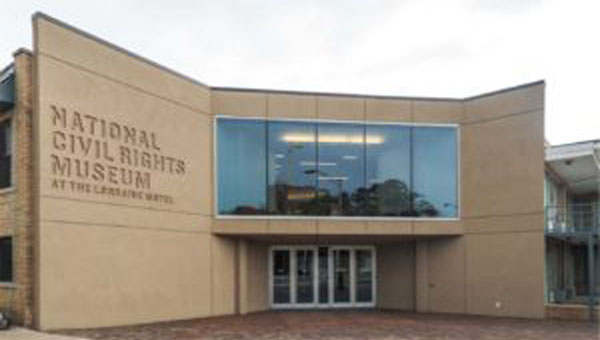By Dr. Russell Wigginton
Guest Contributor
 Every day, I walk through the courtyard of the National Civil Rights Museum at the Lorraine Motel and look up at the wreath on the balcony outside room 306. This is the place, where Dr. Martin Luther King, Jr. was assassinated, on April 4, 1968.
Every day, I walk through the courtyard of the National Civil Rights Museum at the Lorraine Motel and look up at the wreath on the balcony outside room 306. This is the place, where Dr. Martin Luther King, Jr. was assassinated, on April 4, 1968.
I am reminded every day that he died here, seeking freedom for Black people and justice for everyone. I work on hallowed ground. It just feels different. No matter how many times you are in this space, it feels different.
I do not take this unique power of place for granted. I know that the 325,000-plus domestic and global people, who visit us, annually, will never think about freedom the same after their experience here.
The most common feedback from visitors is they now have a better understanding of the historical depth and systematic commitment to deny freedom to Black people, by severely relegating them to an inferior status, after emancipation. It becomes much harder to diminish the residual impact of 244 years of legal slavery, followed by 101 years of constraint for an entire segment of the United States population.
I am still struck by the fact that, even though slaves were freed in 1863, 2.5 years before, Texas refused to share the news with slaves there, because, as it’s told, crops still needed to be harvested by slave labor. Freed people were not free. And even after knowing they were free in this nation, Blacks still didn’t live free.
Black codes replaced slavery. Black codes were intended to keep these newly-freed people relegated to inferior status — economically, politically, and socially. Though legally, all of these inequalities have been removed, significant remnants of such a system are still present today, in American life and culture. This is how I reflect as we celebrate delayed freedom on Juneteenth, “Freedom Day.”
My dream is that “Freedom Day” for all will happen. But we still have basic battles to win. When I think about the signs of progress historically, most occurred through strategies, perceived as radical for their time. Dr. King had the “audacity to believe that people everywhere, can have three meals a day for their bodies; education, and culture for their minds; and dignity, equality, and freedom for their spirits.”
The rallying cry of the 1968 Memphis sanitation workers, who were fighting for their lives, livelihood, and dignity, was “I AM A MAN”. Dr. King’s last act was fighting for the sanitation workers. The brutal deaths of Black men, women, and children spawned the ever-present Black Lives Matter (BLM) movement. The murder of George Floyd, and so many others, reignited the BLM flame. All of these efforts were considered uncomfortable in the moment.
The National Civil Rights Museum has an obligation to create spaces and experiences that not only ground people in the historical limitations of freedom, but how, individually and collectively, we achieve true freedom for everyone.
I believe meaningful progress toward freedom for all, requires a resolve to revise our national narrative, rediscover the rich contributions of Black people to our American distinctiveness, and reevaluate benchmarks for what it means to live a decent life.
Dr. Russell T. Wigginton has been President of the National Civil Rights Museum since 2021 after serving on its Board of Directors for over 10 years and serving over 25 years as an administrator and professor of history at Rhodes College in Memphis, Tennessee.
 Pride News Canada's Leader In African Canadian & Caribbean News, Views & Lifestyle
Pride News Canada's Leader In African Canadian & Caribbean News, Views & Lifestyle





